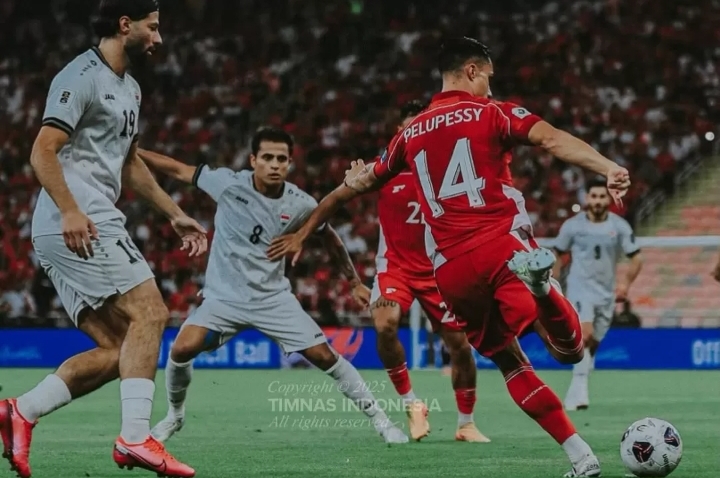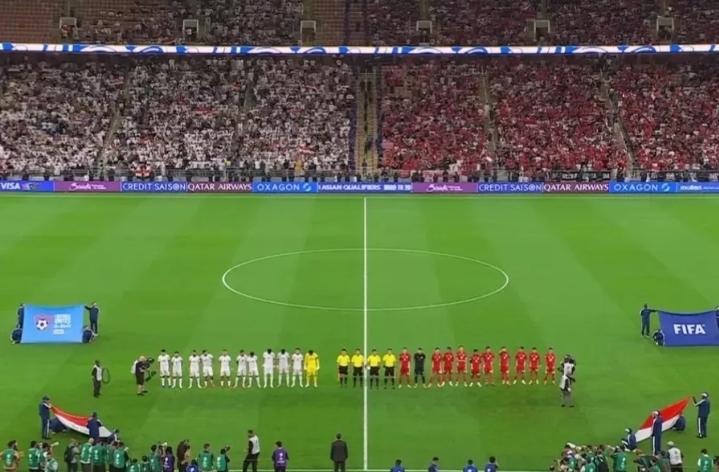The dream of advancing to the 2026 World Cup has been shattered.

had to say goodbye to next year’s world tournament after suffering a 0-1 defeat to .
was confirmed to have no chance of qualifying for the 2026 World Cup due to the sole goal by Zidane Iqbal in the 76th minute at King Abdullah Sport City Stadium, Jeddah, Saudi Arabia.
This loss placed firmly at the bottom of Group B in the fourth round.
is at the bottom of the standings with zero points.
Match Summary
The match initially progressed at a slow tempo.
Neither nor showed particularly aggressive play from the first minute.
But was slightly more dominant. This was marked by the first chance created by Thom Haye, who took a speculative shot in the ninth minute. But his shot from outside the penalty box went wide.
The first golden opportunity came for in the 14th minute. This chance was created through an attacking scheme from the right side.
Thom Haye delivered a short pass after breaking into the penalty box. Unfortunately, Mauro Zijlstra’s first-time shot from the pass was blocked by a player, resulting only in a corner kick.
Meanwhile, chose to wait more in their own area. The Lions of Mesopotamia relied on counter-attacks whenever there was an opening. But nothing was dangerous until the 28th minute.
got another golden opportunity in the 33rd minute. Thom Haye was again the key player through his movement on the right attacking side. The midfielder, nicknamed ‘the professor’, then passed to Eliano Reijnders near the penalty spot.
But Eliano failed to capitalize on that opportunity. Instead of shooting, his pass went back to Haye, who was standing in an offside position.
Two minutes before the first half ended, tried to create a dangerous chance through a free kick. But that opportunity failed because Munaf Younus was caught offside and collided hard with Maarten Paes.
Eventually, the first half ended with a 0-0 score. Both teams still couldn’t score their first goal.
In the second half, Kluivert tried to increase the attacking power by bringing in Ragnar Oratmangoen to replace Ricky Kambuaya. But ‘s dominance actually decreased.
appeared more aggressive in the second half. The Lions of Mesopotamia no longer waited, but tried to be bolder in building attacks. Fortunately, there were no significant chances until the 60th minute.
But didn’t remain idle. Although under pressure, managed to get the best chance in the 64th minute. It was Kevin Diks who nearly scored against , if only his shot inside the penalty box hadn’t been saved by goalkeeper Jalal Hassan.
Disaster struck in the 76th minute. The goal guarded by Maarten Paes was breached after Zidane Iqbal showed excellent individual skill and released a low shot to the left side of the goal.
The shot from the Manchester United academy graduate, who is also Miliano Jonathans’ teammate at FC Utrecht, successfully gave a 1-0 lead over .
This scoreline put under increasing pressure in the final 15 minutes. tried hard to equalize until injury time. But no goal was created, and the 0-1 score became the final result.
However, in the final minutes before the match ended, received two yellow cards, resulting in a red. Zaid Tahseen was sent off for excessive protest after being involved in contact with Kevin Diks inside the penalty box.
Starting XI vs :
(4-2-3-1):
Maarten Paes (GK); Calvin Verdonk, Jay Idzes, Rizky Ridho, Kevin Diks; Joey Pelupessy, Thom Haye;






